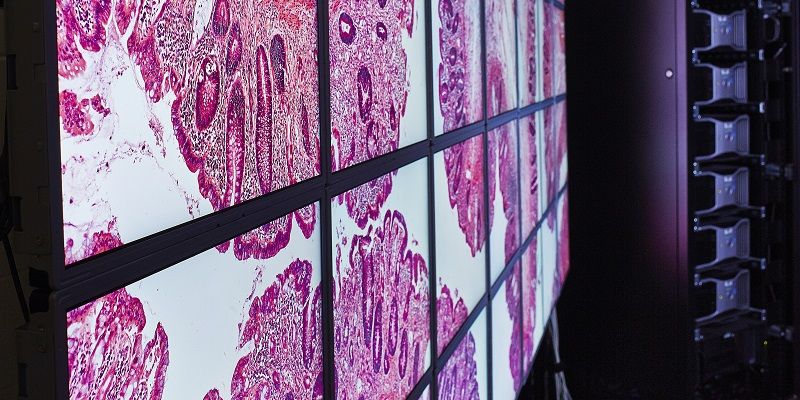
The University has announced 50 fully-funded PhD researcher places to unlock the potential of Artificial Intelligence (AI) in medical diagnosis and care.
A new centre for doctoral training (CDT) will be created, with a focus on the early detection, diagnosis, treatment and care of cancer.
It follows new government funding from UK Research and Innovation, to train the next generation of AI healthcare pioneers.
Medical diagnosis and care
Professor David Hogg is leader of the new centre and professor of Artificial Intelligence at the University of Leeds.
“Our PhD graduates will be equipped with broad skills in AI to innovate in diagnosis and care – in cancer and beyond.”
He said: “AI has the potential to make a real difference to patients with chronic diseases such as cancer.
"Early detection is critically important, identifying those at risk of cancer before symptoms appear, as well as identifying lifestyle changes that would reduce long-term risk.
“We can also ensure AI increases the reliability of diagnostic services, through faster and more accurate digital radiology and pathology, and it can provide clinicians with targeted and tailored care for each patient.
“Leeds has an outstanding research and clinical reputation.”
“We are recruiting talented students from a range of background, from across science, engineering and health. While we will be focusing on cancer, where Leeds has an outstanding research and clinical reputation, our PhD graduates will be equipped with broad skills in AI to innovate in diagnosis and care – in cancer and beyond.”
Partnership with teaching hospital
Researchers will work with key national partners including Leeds Teaching Hospitals Trust (LTHT), the NHS and industry.
LTHT is one of the largest teaching hospitals in Europe. It is known as a major centre of cancer research, with a world-renowned biomedical research facility and a leading clinical trials research unit.
Dr Christopher Herbert, Director of Operations: Research and Innovation at LTHT, said: “At the heart of the CDT is a close partnership with LTHT. This partnership will enable us to provide an outstanding and grounded training experience that maximizes the capacity of graduates to translate research into innovation within the NHS.
“We believe that AI will transform the way that medicine is practiced and how patients are managed over the next 20 years, and we want to be at the forefront of that revolution.”
The investment in this doctoral training centre builds on the University’s well-established track record in transferring cross-disciplinary research ideas into world-leading clinical practice and products.
Researchers will collaborate with academic staff and work alongside clinicians and patients, positioning then as highly-skilled employees.
Data science and artificial intelligence
They will be hosted by the Leeds Institute for Data Analytics (LIDA), established with University investment to support innovation in Medical Bioinformatics, funded by the Medical Research Council, and Consumer Data, funded by the Economic and Social Research Council.
The Institute has now grown to support a portfolio in excess of £45million of research across the University, bringing together over 150 researchers and data scientists, which includes a CDT in Data Analytics.
It supports the University’s partnership with the Alan Turing Institute, the UK’s national institute for data science and artificial intelligence.
“Working with world class academic institutions and industry we will be able to train the next generation of top-tier AI talent and maintain the UK’s reputation as a trailblazer in emerging technologies.”
Commenting on the UKRI investment, which will be supporting 16 new centres for doctoral training across the UK, Digital Secretary Jeremy Wright said: “The UK is not only the birthplace to the father of artificial intelligence, Alan Turing, but we are leading the way on work to ensure AI innovation has ethics at its core.
“We want to keep up this momentum and cement our reputation as pioneers in AI. Working with world class academic institutions and industry we will be able to train the next generation of top-tier AI talent and maintain the UK’s reputation as a trailblazer in emerging technologies.”
The Centre for Doctoral Training in Artificial Intelligence for Medical Diagnosis and Care will be welcoming the first cohort to join the University in September.
Further information
Read more about the government’s AI Sector Deal.
For interviews or further information please contact University of Leeds press office on pressoffice@leeds.ac.uk or +44(0)113 343 4031